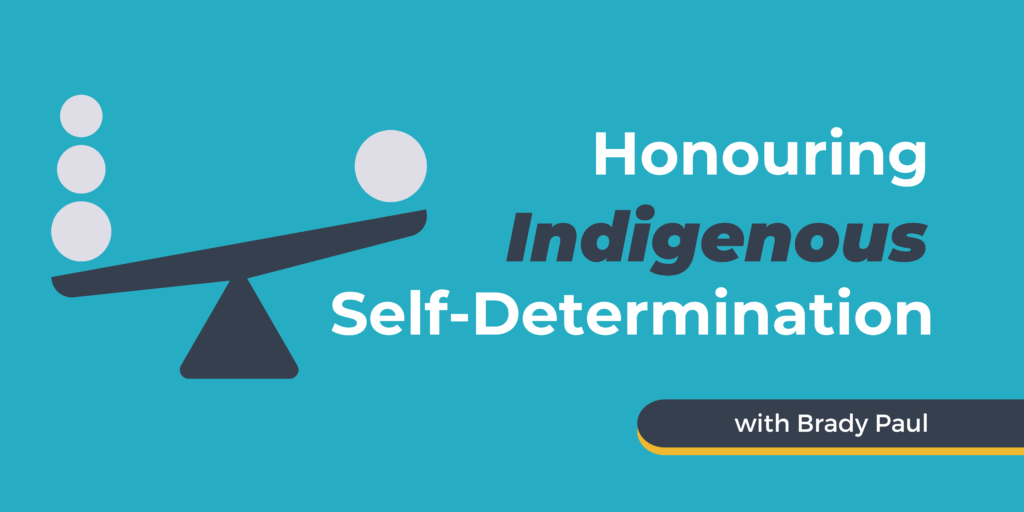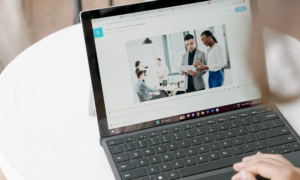

Canada can feel like a progressive or inclusive place or space for some, but that is far from the truth for all of us.
The Indigenous people of Canada have been, and still are, subject to complex and sophisticated forms of public and institutional discrimination that go unnoticed, or noticed and ignored. The truth is the impact of legislation like the Indian Act which was intentionally intended to oppress Indigenous peoples permanently, is still permeated within our systems and organizations.
I get asked many questions about reconciliation and what it looks like for Indigenous peoples. This is something that I cannot answer, because how can I? I can not speak for all Indigenous people. I am not Indigenous, I am Wolastoqiyik.
This means that I have a different lived experience compared to Indigenous peoples from other Nations across Turtle Island. This can also be the case for other historically equity-deprived or seeking groups or individuals. All this to say, there is no one right way to address colonialism and the systemic hate that it fosters.
As a Wolastoqiyik person, I am protected by the United Nations Declaration on the Rights of Indigenous Peoples. These articles have yet to be fully implemented by the Canadian government and colonial institutions. Canada even voted against this international legislation in 2007. Finally with the passing of Bill-C15 “An Act respecting the United Nations Declaration on the Rights of Indigenous Peoples” in 2020 the conversation began on how or when these articles can be implemented.
But for me? It begins with Indigenous self-determination.
Self-determination means as Indigenous people, we control our own destiny and are the authority over all matters that impact our lives, culture, and language.
It requires settlers to relinquish control over Indigenous matters and acknowledge that Indigenous lived experience is equal and relevant, and needs to be a fundamental and foundational pillar of our current systems and institutions.
It is my belief, settlers must acknowledge and uphold all Indigenous Rights. If you are a settler reading this, it is not your place to determine or choose which rights Indigenous people can exercise. As settlers, I ask you to respect our federal and internationally recognized rights and follow our direction on how they are completed.
For example, when you have institutions, like universities that were created, designed, and managed by settlers without Indigenous leadership or consultation, you create an environment that supports and empowers settler students to thrive. For many decades, the education curriculum was taught by settlers for settlers. This model of learning is not “Indigenous” to this land. Universities are institutions of European origin and design. This meant that uncomfortable or contradictory historical facts, like in-depth Treaty Education, were either conveniently omitted or not presented equitably in the historic colonial timeline.
But when you foster an environment that respects Indigenous peoples’ right to self-determination, historical significance is centred and can be presented more clearly. This is because the teachings are designed, delivered, and managed by Indigenous people, thus ensuring cultural and institutional integrity.
I firmly believe that self-determination can be used to address the systemic barriers that equity-deprived people are facing today. To truly end the colonial era, which we are still in, we must begin with true reconciliation. True reconciliation means settlers must give up control over matters they are not qualified to manage, and and acknowledge that Indigenous lived experience is equal and relevant. Any hesitation or resistance to this advances colonialism and is anti-reconciliation in nature. Letting go of control will make space for new approaches and meaningful change to take place.
Note: Self-determination is not a promise, it is an inherited right. The reason why these rights are not upheld is because of the potential they have for ending the systemic barriers imposed upon Indigenous people of turtle island.
What can a settler do to honour self-determination? Respect and accept
Indigenous self-determination is not something that you need to fully understand, because how could you? This journey of decolonization will not happen overnight or even in our lifetime. What you can do as a settler is respect and accept self-determination.
Respect: Just because Indigenous rights do not apply to you or that you haven’t heard of them does not mean they are not equal to human rights or laws. Respect that they were created to protect and empower Indigenous people. Know that I am not coming to take what you have, I’m coming to balance the scales.
Accept: This is how we decolonize every fabric of our society and it is a joint effort. Accept it will be challenging for you. Anything worth doing is.
To decolonize ourselves and communities, settlers must acknowledge the contemporary and historical facts that continue to be ignored, especially in the realm of politics. This can only happen by freeing yourself from the colonial worldview that is focused on preserving the status quo of European settler privilege and the Canadian settler-state.
“Piluwitahasuwawsuwakon” (bill-wee-duh-huz-zoo-wows-sue-wah’-gn)
“Allowing your thinking to change so that action will follow in a good way toward truth.”
Stay on this journey with us, and follow along for more blogs by Brady and other P4G contributors at p4g.ca/placemaking-at-work

